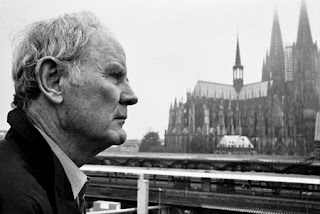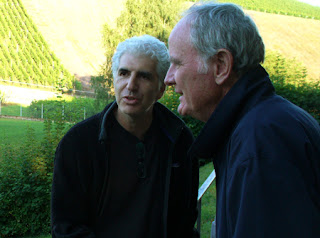 In his sweeping literary work, “Constantine’s Sword: The Church and the Jews: A History,” former Catholic priest James Carroll traces the confluence of religion, politics and violence from Jesus’s crucifixion to the present day. Through his exploration of European Christian antisemitism, he suggests that religious intolerance inculcated within the Catholic Church has motivated war and violence against non-Christian peoples, particularly the Jews.
In his sweeping literary work, “Constantine’s Sword: The Church and the Jews: A History,” former Catholic priest James Carroll traces the confluence of religion, politics and violence from Jesus’s crucifixion to the present day. Through his exploration of European Christian antisemitism, he suggests that religious intolerance inculcated within the Catholic Church has motivated war and violence against non-Christian peoples, particularly the Jews.
His widely acclaimed book is now the subject of a documentary film of the same name that held its world premiere at the Los Angeles Film Festival last week. Skillfully adapted by filmmaker Oren Jacoby, who combines Carroll’s dense research with a recorded pilgrimage to four countries, the film hints at a link between gospel-based portrayals of the Jews and centuries of persecution culminating with the Holocaust.
 Underscored by Carroll’s personal confessions about his own history, “Constantine’s Sword” is both personal and political. After discovering the atrocities committed during the Vietnam war, Carroll lost his faith in the institutions of the Catholic Church and the American government. He became a writer and began studying history, theology and philosophy to create a self-defined morality.
Underscored by Carroll’s personal confessions about his own history, “Constantine’s Sword” is both personal and political. After discovering the atrocities committed during the Vietnam war, Carroll lost his faith in the institutions of the Catholic Church and the American government. He became a writer and began studying history, theology and philosophy to create a self-defined morality.
Jacoby’s camera quietly follows Carroll on his path, as he meets with church officials, visits religious sites in Rome and travels to Auschwitz. Through archival footage of war and graphically altered religious imagery, Jacoby weaves a biblical and historical recounting with the reality of their modern consequences.
Parallels are drawn between the history of religious fanaticism and current U.S. foreign policy, bringing attention to a coordinated program of indoctrination at the U.S. Air Force Academy being carried out by American Christian Evangelicals. “We were shocked to discover how many Americans donât seem concerned about a possible breakdown between the separation of Church and State. They insist that America is a Christian nation, and have somehow revised history to convince themselves that this was a principle of our Founding Fathers,” Jacoby states on the film’s website.
The film connects the history of religiously inspired violence with the idea that Evangelical movements use the military to parlay intolerance of Muslim nations into a new kind of crusade. Former leader of the National Association of Evangelicals Ted Haggard candidly discusses his political influence with Carroll and admits to a weekly conference call between national Evangelical leaders and President Bush.
“Constantine’s Sword” is a riveting example of how history can be distorted in the name of religion and God. The metaphor here is Constantine’s sword—a weapon morphed into a spiritual symbol—or is it the other way around? Nevertheless, the cross is presented as an image associated not only with the death of Jesus Christ, but as an instrument of war used to conquer “dissenting” people of other faiths.
This film questions the morality of religiously justified violence, but instead of raising a sword, it employs the art of filmmaking to challenge a dominant paradigm.























 More news and opinions than at a Shabbat dinner, right in your inbox.
More news and opinions than at a Shabbat dinner, right in your inbox.